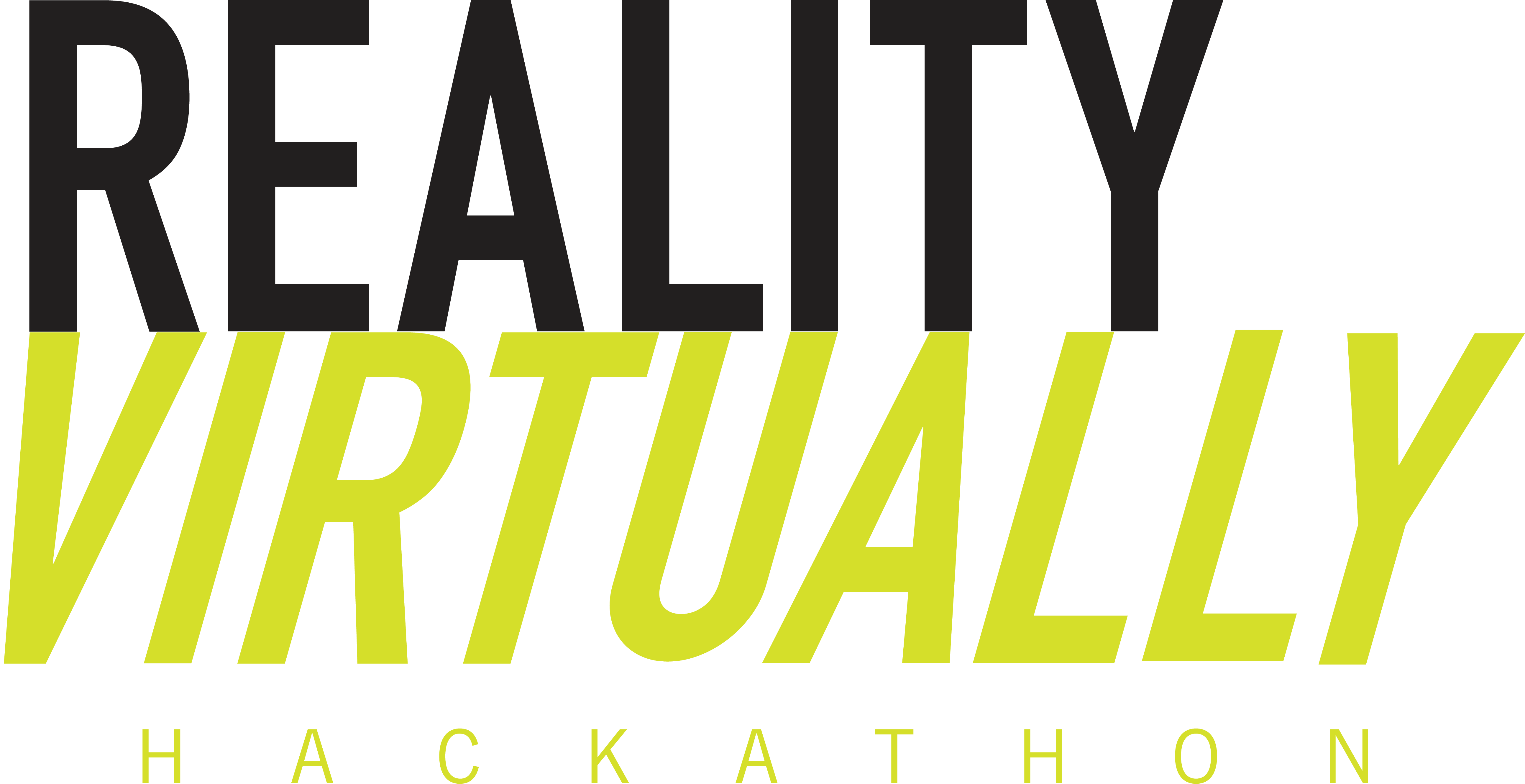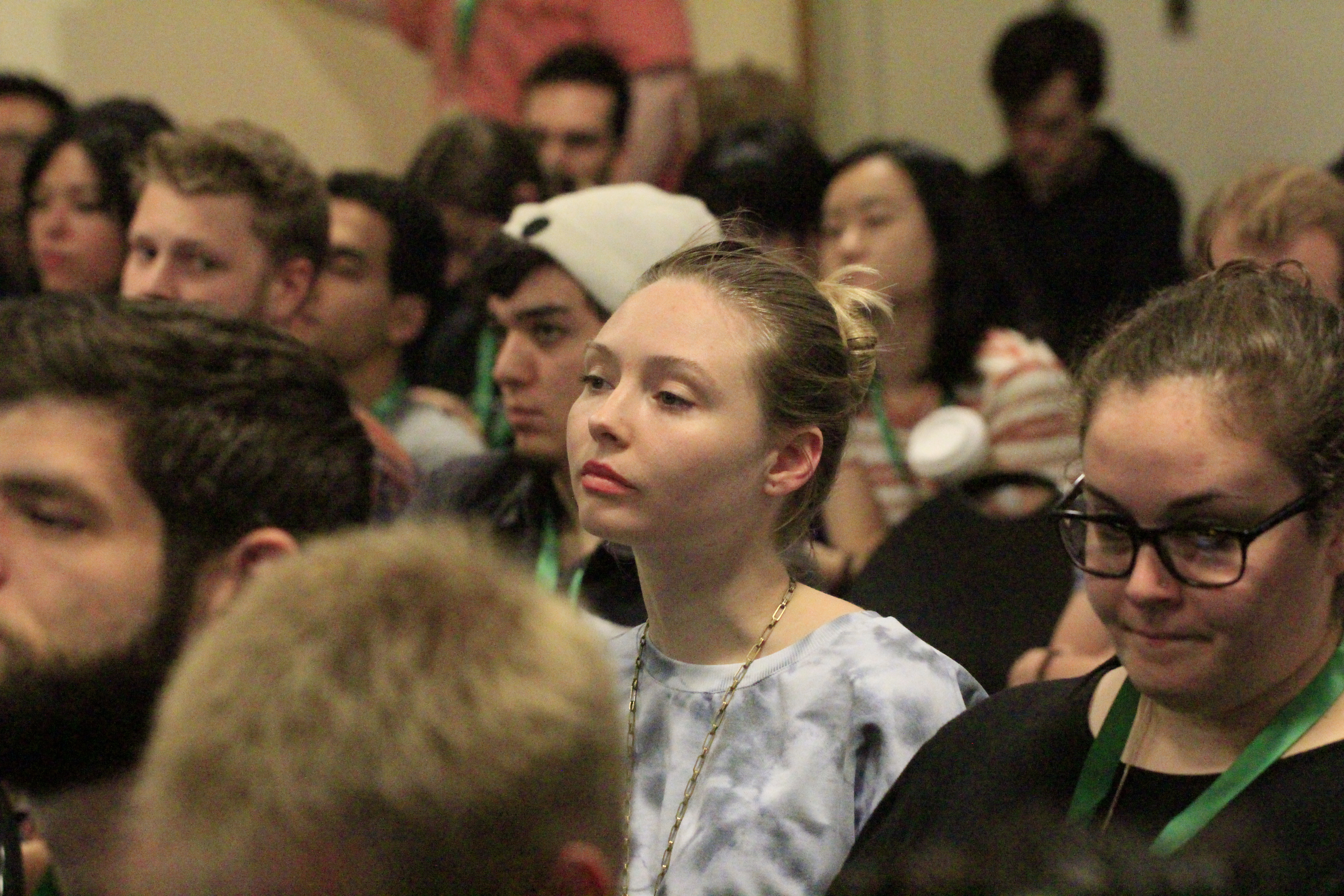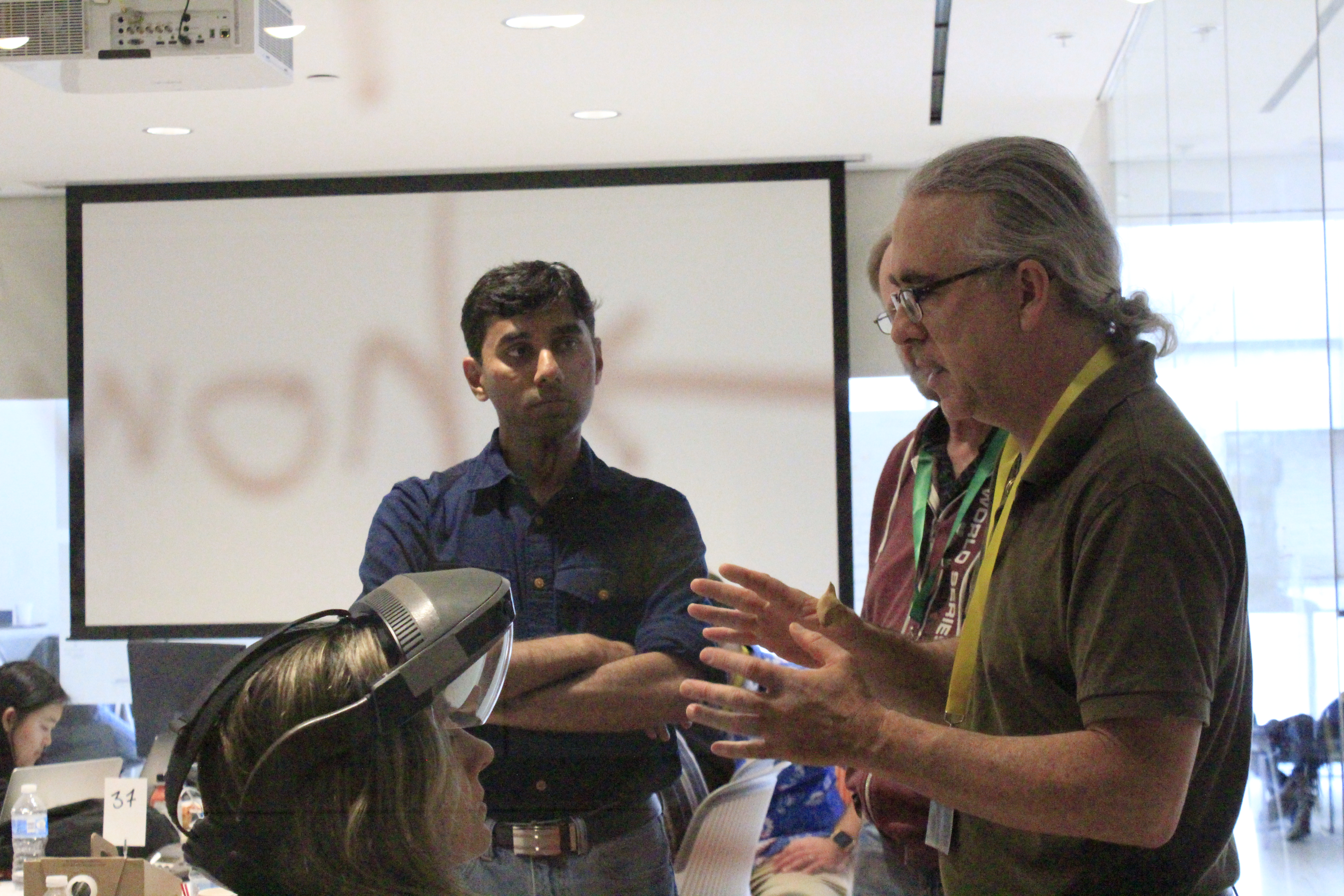diversity goal met
projects available under open source license
better than a 10:1 participant to mentor ratio
Reality Virtually Hackathon returning to the MIT Media Lab, January 17–21, 2019
Purpose-built hackathon community
The Reality Virtually Hackathon is a purpose-built hackathon community of 400 participants selected from approximately 1,600 applicants to create original cross reality (XR) work. The hackathon is a learning experience that deepens the extended community’s understanding of how immersive technology can be applied to solve real-world problems. It takes place in the iconic MIT Media Lab, overlooking the breathtaking Boston skyline in the heart of Cambridge’s tech scene-- a setting that inspires the most creative work.
Guiding Principles - Interdisciplinary teams
The guiding principles of the Reality, Virtually hackathon rest on interdisciplinary teams. Networking with new people, and exposure to new ideas and skill-building workshops set the stage for impassioned individuals to fuse into teams, with each team sharing a common vision to implement an impactful, original idea. The distillation of the approximately 400 unaffiliated people into teams of up to five individuals produces a creative dynamic, resulting in unique applications of immersive technologies to create ingenious, never-before-seen XR experiences and applications
Pros and students build together
The distribution of participants will be 50% students and 50% working practitioners. We will meet or exceed last year’s diversity and inclusion results of 43% female with 53 races/ethnicities and countries of origin represented
New companies, new careers, and impact on society
If the Reality, Virtually Hackathon holds true to past events, it will have life-changing impact. For example, Gautham Pasupuleti, a 2017 participant, developed his winning submission into a UNICEF-supported pediatric eye care and healthcare project for under-resourced geographies. Two-time hackathon winner Jackie Assar joined Google’s hardware team along with her teammate Anish Dhesikan, who is now a software engineer on the Google AR team. Companies formed from winning teams, such as 2016 winner Waypoint RX, have gone on to be acquired (Waypoint was recently acquired by PTC.)
Top sponsors teach skills and loan equipment
Last year’s hackathon–the largest ever immersive event–attracted sponsors such as Samsung, Microsoft, AT&T, Google, HTC VIVE, HP, Autodesk, and Ricoh’s Theta camera group. Last year’s submissions represented fields such as education, healthcare, entertainment and storytelling, commerce and industry, and human/social interaction.
of learning, building, new people and new ideas

New this year
Participants in previous years have asked for more time to build, so we’ve added a fifth day to the schedule to expand creative time to almost 60 hours. Another request by participants was the opportunity to see the submissions built by other teams. On the last day of the hackathon, beginning right after the awards ceremony, the Insider Expo will begin, where participants can visit other teams’ tables to see their creative and original work. The hackathon will close with a public expo for the Boston/Cambridge AR/VR technology community at large.

Workshops
The hackathon will kick off on January 17, 2019, with a full day of skill-building workshops on XR design, development, and XR platforms like the Vive, Hololens, and MagicLeap. Workshops will feature speakers covering hardware, development methodologies, and immersive design concepts.

Mentors
Skilled in XR design, development, and with domain expertise in verticals such as healthcare and medicine, 40 mentors will help teams throughout the hackathon, coalescing individuals into teams, ideating, creating, troubleshooting, debugging, and refining for submission to the judges.

Our Mission and Commitment to Diversity
The Reality, Virtually Hackathon is a platform that cultivates unique innovations in the field of immersive technology. Our mission is the creation of a community of inclusion, where imaginative minds across all dimensions of diversity can collaborate to inspire innovation and build better together.
| Hackathon Themes | Categories and Examples |
|---|---|
| Social Good | Sustainability, Accessibility, Conflict Resolution, Civic Duty, Safety, Security |
| Mobility and Communications | Automotive, Conferencing/Chat, Travel, Navigation, |
| Health and Wellness | Healthcare, Medicine, Therapy, Mindfulness, Fitness |
| Art, Media and Entertainment | Music, Visual Art, News/Journalism, Advertising |
| Games and Learning | K-12 Education, Distance Learning, Job Training, Academic Topics (e.g. History, Science, etc.), Reference, Museums, games and application of game UX/UI and agency to other domains. |
| Productivity | Finance, Data Visualization, Engineering Design, Construction Design, Manufacturing Design, Utilities |
| Industrial and Commercial | Immersive technology and IoT, Construction, manufacturing, field service and eCommerce |
Watch last years recap
"Many of the things that you saw created here you might see on a virtual store shelf next year or even sooner."
Richard Marks Head of PlayStation Magic Lab"The quality of ideas, diversity, and scale of the Reality Virtually Hackathon has been impressive. It's a thrill to be supporting the VR and AR communities at the grassroots level."
Nick Nigam, Venture Investor at Samsung's Global InnovationCenter"Very interesting to walk around, great diversity, the most diverse hackathon I have ever been too."
Benjamin Nelson, Sr. Product Marketing Manager at AT&T